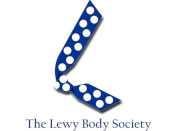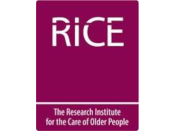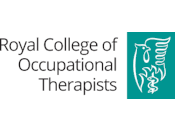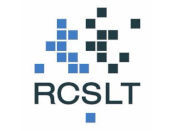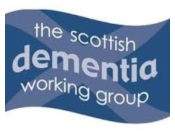
Living with dementia: sight and hearing loss
Living with dementia: sight and hearing loss
This factsheet is available for sponsorship, email marketing@dlf.org.uk
Sponsorship has no influence on our impartial content
Factsheet contents
- Introduction
- Vision and perceptual problems
- Automatic lighting
- Audio labellers
- Magnifiers
- Large print keyboards
- Hearing and understanding
- Hearing aids and tips for communicating
- Equipment for hearing
- Dementia and hallucinations
- Accessing your needs
- Provision of equipment
- Funding sources for care
- For further advice from us
- Contributors
- Useful organisations and resources
- References and further reading
Introduction
Choosing equipment for sight and hearing loss
Simple everyday equipment aids which are familiar to you are the easiest to use with dementia and sensory impairment.
Sight and hearing loss (known as sensory impairment) becomes more common as we get older and can present a greater challenge when combined with dementia.
If you experienced sight or hearing loss prior to the diagnosis of dementia, it presents a lesser challenge - you would have learnt coping strategies and techniques and become familiar with using equipment to assist with your sight or hearing loss. The greater difficulty occurs when sight or hearing loss happens after the development of dementia, as coping strategies can be difficult to learn once your memory has been affected by dementia.
Vision and perceptual problems
Dementia can cause different kinds of sight problems due to brain changes. These are known as perceptual problems. Some examples are:
- Experiencing difficulty in locating objects, due to being unable to distinguish an item from its background
- Being unable to recognise changes in floor surface levels such as stairs, steps or ramps, due to difficultly in distinguishing between changing depths
- Getting lost around the home due to disorientation - this can made worse by dim lighting.
Products with contrasting colours
Contrasting colours can assist if you have sight loss or are experiencing perceptual problems. For example:
- Select furniture which stands out in colour from the rest of the room. Paint sharp edges of furniture in a contrasting colour or cover in coloured foam to prevent injury
- Use crockery that contrasts in colour to the table surface
- Opt for brightly coloured, non-patterned bed coverings which stand out from the rest of the room
- Replace door and furniture handles with contrasting colours to the doors/drawers
- A contrasting coloured toilet seat can make the location and outline of the toilet bowl more obvious
- Carpets which contrast with the walls and furniture (non-patterned) can help with sight and perceptual problems
- Avoid pastel shades as they fade into the background, making them difficult to see.
Automatic lighting
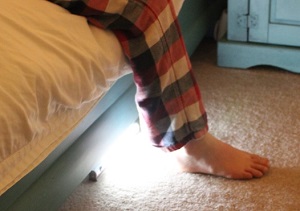 If you have dementia and sight loss, you may benefit from automatic lighting. Good lighting can:
If you have dementia and sight loss, you may benefit from automatic lighting. Good lighting can:
- enhance the ability to see things
- stimulate vision
- help with some perceptual problems
- help you to make the most of your existing sight.
Automatic lighting can be particularly useful if you have difficulty locating where the light switches are or forget to switch lights on, and are thus at risk of falls during the night. It can help you move between light and dark areas, with light sources adjusting automatically to demonstrate obstacles.
High vision lamps
Table and floor standing high vision reading lamps are designed to be simple to operate are can be useful for reading and close work. As your condition progresses, a family member or carer may be required to assist with switching the lamp on and off and adjusting it.
Audio labellers
Audio labelling equipment allows you to create and record identification labels for a range of everyday items. A label is placed on the item that needs to be identified. A message can be recorded by touching the label and holding down the record button. To hear the message, touch the label with the audio labeller and the recording will be played back.
As there are several stages involved in the process of creating and playing back recorded labels, this equipment may be more suitable for individuals who have used it routinely prior to the onset of dementia and so are familiar with how to operate it.
Magnifiers
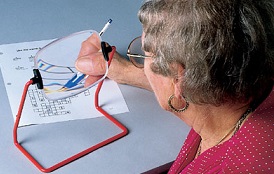 Simple magnifiers may be of benefit to you.
Simple magnifiers may be of benefit to you.
If you have advanced dementia, you may find the more complex models difficult to use.
However, it may still be worth considering them if you have used them prior to the onset of dementia, are familiar with their set-up or have carers or family available to assist.
Sheet magnifiers which fit over the page are designed to be straightforward to use.
A computer screen magnifier may require the assistance of family or carers to set it up. It would be of benefit in the early stages of dementia only.
The autofocus ruler enlarges one line of text at a time.It would be suitable for you in the early stages of dementia.
Large print keyboard
A large print keyboard helps to increase the clarity of computer keys for people with sight loss or perceptual problems. If you have used a keyboard for a reasonable duration prior to the diagnosis of dementia, you will have more success with these products, as keyboard skills are embedded in the long-term memory. Keyboards may have black letters on a white or yellow background or white letters with a black background.
 Alternatively, large print keytop stickers consist of large lettering printed in a bold typeface, with either black lettering on a yellow background, white lettering on a black background or black lettering on a white background to enhance the contrast. These are stuck onto individual keys on a computer keyboard.
Alternatively, large print keytop stickers consist of large lettering printed in a bold typeface, with either black lettering on a yellow background, white lettering on a black background or black lettering on a white background to enhance the contrast. These are stuck onto individual keys on a computer keyboard.
Hearing and understanding
A person with dementia may find it hard to understand speech - this is caused by brain changes which affects the ability to process information. Because of this, carers or family may find it difficult to work out if the person is experiencing hearing loss or is having difficulty in understanding speech. Sometimes it can be a combination of both.
Research has demonstrated that people with hearing problems are more likely to develop dementia, although at present we don’t know why this is (Alzheimer's Society, 2018).
It is important to address hearing loss with dementia as early as possible. Hearing problems can make participation in social activities difficult, leading to isolation and loneliness. In addition, hearing problems can compound existing communication difficulties which some people with dementia may have. Having regular hearing checks and making the most of the hearing the person does have – for example, by using hearing aids - can help. (Alzheimer’s Society, 2018).
Hearing aids
For hearing problems, the first port of call should be the GP who may refer you to an audiologist. The audiologist will carry out a hearing test and advise on the type of hearing aid best suited for you.
In the early stages of your condition you may be able to learn how to use and care for your hearing aid yourself. However, it can be harder to learn new instructions and tasks if you have a dementia, and so the support of a family member, friend or carer may be required in setting up, using and maintaining this equipment.
There are different categories of hearing aids:
- Behind the ear
- Receiver in the ear
- In the ear (ITE)
- In the ear canal (ITC)
- Completely in the ear canal (CIC)
- Invisible in the canal (IIC)
- CROS/BiCROS hearing aids (for hearing loss on one ear)
- Body worn
(NHS, 2017)
You can read more about each of these hearing aids by visiting the NHS website.
Tips for communicating
If you decide not to use a hearing aid, then the following communication strategies may assist you when communicating with others:
- Before you speak ask people to directly face and look at you
- Look at the mouth of the person who is talking to you
- It is important to focus on the speech sounds, so it is best to ensure that there is no distracting background noise such as radio or television.
Further information on communication and dementia that is not specific to hearing loss, but still useful whether a person has hearing loss or not, can be found in the Alzheimer’s Society's fact sheet Tips: communicating with someone with dementia
Equipment for hearing
There is a range of equipment for that can help with hearing loss, including:
- Household equipment for individuals who are deaf or have hearing loss
- TV and music system amplifiers, flashing alarm clocks and smoke alarms
- Listening equipment for conversation for non-hearing aid users
- Listening equipment for conversation for hearing aid users
- Telephones including those with amplification of speech or a flashing ringer
- Sound generators for tinnitus.
It is likely that you may require the support of carers or family to use new equipment, however it is still important to try and select equipment that is simple and has as few operating steps as possible. This will give you the maximum chance of being able to use the equipment independently.
Further reading: You can find out more about choosing equipment for hearing loss in DLF's factsheet on sight and hearing loss.
Audio-visual amplifiers
Audio-visual amplifiers are designed to amplify sounds from a TV and audio audio equipment. Amplifiers are plugged directly into the headphone socket of the television, radio or hi-fi, or are placed adjacent to the sound source. Headphones are plugged into the amplifier and provide amplified output.
Many people gain enjoyment and entertainment, as well as cognitive stimulation from listening to the TV and radio, so making these forms of entertainment audible can help with mood and quality of life.
Flashing telephone / doorbell
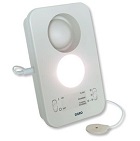 If you have a hearing impairment and dementia, a flashing doorbell can provide a prompt to answer the door. It can be suitable to be introduced to a person in the early stages of dementia, however if you have a more advanced dementia, you may find this product confusing or alarming and it would not be recommended.
If you have a hearing impairment and dementia, a flashing doorbell can provide a prompt to answer the door. It can be suitable to be introduced to a person in the early stages of dementia, however if you have a more advanced dementia, you may find this product confusing or alarming and it would not be recommended.
Amplified Telephones
Choosing a telephone if you have dementia
Please bear in mind that the simpler the phone, the easier it will be for you to use.
You may find hearing the telephone ring, or hearing who is speaking on the telephone challenging - with memory problems or dementia this becomes an even greater obstacle.
Phones range from the most basic model with larger numbers, to those with an with an amplified ringer, visual flashing ringer and/or amplified speech which may help if you have hearing loss. Many phones are compatible with hearing aids.
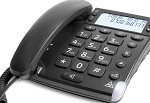 If you have dementia, choosing a telephone that operates and looks like a familiar telephone can work well, because using them will not require the need to learn a new skill.
If you have dementia, choosing a telephone that operates and looks like a familiar telephone can work well, because using them will not require the need to learn a new skill.
Some of the phones listed below are simply familiar standard phones which have been adapted.
Dementia and hallucinations
A hallucination is the experience of hearing, seeing, tasting or smelling things that are not present - for example, a person experiencing a hallucination may hear voices or see objects or people that are not there (NHS, 2016). Hallucinations may occur later in dementia due to brain changes, or as a side effect to certain medications. They are more common with certain types of dementia such as with dementia with Lewy bodies, Alzheimer's dementia and dementia with Parkinson’s disease (Alzheimer’s Society, 2018).
Hallucinations may add to the challenge of memory problems. If you are experiencing hallucinations, contact your GP. He/she will carry out an assessment and may be able to find solutions to your symptoms, though changes in medication for example. Or you may be referred on to a Community Mental Health Team (CMHT) who will have specialist knowledge in this area.
If you are the carer or family member of a person experiencing hallucinations, provide reassurance and acknowledge what they see - to them, what they are experiencing is real. For further advice The Alzheimer’s Society has information on the different types of hallucinations and how to manage them.
Assessing your needs
A range of conditions may cause forgetfulness, anxiety, low mood and confusion, however they may also be early signs of dementia. A visit to your GP would be recommended to rule out other causes and allow for a better understanding of the illness and how it may progress, as well as strategies on how to manage the symptoms.
The assessment for dementia is a process that takes time and goes through various stages and tests. These may include a physical examination, a blood test and interviewing both the person and their concerned friend/relative separately. This may lead to a referral to a local memory service or clinic. The GP, Community Psychiatric Nurse or a member of the memory clinic staff will be able to advise on symptoms, how the disease may develop and provide information on appropriate treatment. They will also be able to advise you on what support there is available locally. Prior to an appointment it can be useful to keep a journal or diary of any tasks that have become more difficult or concerns that you may have.
The GP can refer you for a Health and Social Care Needs Assessment, or you can contact your local authority Adult Social Care Department and make a self-referral, or have a friend or relative do it for you. By law anyone who appears to need care and support can request an assessment regardless of their income or savings.
The assessment will focus on your needs, how they impact on your well-being and on what you want to achieve and will aim to identify any difficulties you may have in caring for yourself. An Occupational Therapist will carry out the assessment and will be able to advise on strategies to help reduce any identified risks and recommend any equipment that may be helpful to maintain independence. If someone else is helping you they are also entitled to a carers assessment, which will help to identify what help and support they may need.
There are a number of charitable organisations listed below that can provide help and support for the person with dementia and their relatives and carers.
Provision of equipment
Many simple assistive technology devices mentioned in this fact sheet can be privately purchased. Others can be provided by local authorities or the NHS to meet an assessed need; you or a family member can request a home assessment from an occupational therapist
Permanent loan: Local Authority and health provision
If you require disability equipment, telecare or adaptations to your home then your local authority may be able to help. They can supply equipment or minor adaptations that cost under £1,000, free of charge. (Department of Health 2014, section 2.9). In Scotland, Local Authorities make their own arrangements for provision of minor adaptations and details can be accessed via your Council's website.
Some equipment such as pressure relieving cushions, mattresses, some mobility aids and wheelchairs are supplied by your local Health Authority. A referral to the District Nurse or Wheelchair Service for these items can be made via your GP or other health professionals including a Community Occupational Therapist or Physiotherapist.
Disabled Facilities Grant (DFG)
Should you need adaptations to your home that cost more than £1,000 that will allow you to continue to live there, you may be eligible for a Disabled Facilities Grant (DFG). An Occupational Therapist will complete an assessment and if the work is deemed necessary to meet your needs and is reasonable and practical, then they will arrange for a financial assessment to be undertaken.
If you meet the criteria for funding, the Occupational Therapist will make recommendations for the adaptations required.
Private purchase
If you do not wish to use local authority services, there are independent Occupational Therapists who can assess your needs and help to advise or assist you in buying any equipment or arrange adaptations to your home that you may require.
You can also purchase equipment privately, but it is recommended that you compare different options first. There may be an equipment demonstration centre near you where you can look at and try out equipment before purchasing, as well as receiving impartial advice.
Charity and Grant funding
Charitable trusts may sometimes provide equipment or give a grant for equipment purchase.
Turn2Us is a national charity that helps people who are in financial difficulty find grants for the provision of equipment, and Community Care gives a list of charitable organisations that give grants.
Charities tend to give awards in accordance with a predetermined criterion, so it is important that you carefully select the organisations that apply to your condition. There are also some workplace charities that will provide support for ex-employees. If you are or have served in the Armed Forces, or are a dependent or carer of a person who has served, The Royal British Legion may be able to provide you with support for specialist dementia care or grants for equipment and adaptations to your home, or small crisis grants to meet unexpected expenses.
Funding sources for care
If you need support with daily tasks that may include help from a carer, the delivery of meals or residential care then your local authority may help with the cost. How much support you are entitled to will depend on your income and savings and what your care needs are. A financial assessment of your means will be carried out to establish how much support you are entitled to.
You may be eligible for further financial support such as Attendance Allowance or Personal Independence Payment (PIP) and if you have a person who cares for you for 20 hours or more a week, they may be eligible for some financial support.
If you live alone you can apply to your local authority for a 25% reduction on your Council Tax bill, or if you live with someone else then they may be eligible for a 25% reduction on the Council Tax bill. As your condition progresses, they may be eligible for a further 25% reduction.
Private carers and residential care
If you are looking for a carer or are considering residential care, then you should ensure that the staff are trained in dementia care and are able to give the specialist help you need. A residential home should be designed to provide the best possible environment for you. There are a number of organisations that can help you with choosing a suitable home, including:
- Elderly Accommodation Council
- Housing Care.org
- DementiaUK
- Relatives and Residents Association
- Paying for Care
Care Home ratings/selector
Inspection reports and care home ratings can be found via:
- England – Care Quality Commission
- Scotland – Care Inspectorate
- Wales – Care Inspectorate Wales
- Northern Ireland – Regulation and Quality Improvement Authority
Charity and Grant funding
Charitable trusts may sometimes provide funding for care, nursing or residential respite, permanent care or a befriending service. Charities tend to give awards in accordance with a predetermined criterion, so it is important that you carefully select the organisations that apply to your condition. There are also some workplace charities that will provide support for ex-employees. If you are or have served in the Armed Forces, or are a dependent or carer of a person who has served, The Royal British Legion may be able to provide you with support for specialist dementia care or small crisis grants to meet unexpected expenses.
Further information relating to grants is available from:
- Community Care – a list of charities providing grants.
- Turn2us - Turn2us is a national charity that helps people in financial hardship gain access to welfare benefits, charitable grants and support services.
- Housing grants information from Disability Rights UK - led by people with diverse experiences of disability and health conditions, from different communities.
- Disability Grants - grants for disabled adults.
- My grants - accessibility grants for disabled and older people.
- Grants for individuals - this website is run by the Directory of Social Change and lets subscribers search for grants. It is intended for organisations searching for funding on behalf of individuals.
- The Money Advice Service - Charitable grants and major and minor adaptations.
VAT relief
If you have a diagnosed long-term condition, you may be able to claim VAT relief on purchases relating to the condition. The company supplying the equipment should be able to advise you, or there is general information on VAT relief on the GOV.UK website.
For further advice from us
For clear, practical advice and information on products and suppliers of daily living equipment, please have a look at our Living made easy website.
If you would like further advice related to choosing equipment for everyday living you could try relevant sections of AskSARA, our free online guided advice tool. AskSARA will ask you questions about yourself and your environment and then offer relevant advice, product suggestions and supplier details.
You can contact the DLF Helpline, which is open Monday to Friday from 10am to 4pm. Tel: 0300 999 0004 (calls charged at your standard land line rate even if you are phoning from a mobile).
Alternatively, you may wish to contact us via email: info@dlf.org.uk or by letter: DLF, 34 Chatfield Road, Wandsworth, London SW11 3SE.
To help us give you a concise and informative reply, please provide us with as much detail as possible, including information on the difficulties you are having and any solutions you have considered, such as equipment ideas.
Another source of advice is a disabled or independent living centre where you would have the opportunity to try out a range of equipment. There are several of these around the country where you can go for impartial advice. Your local authority will also be able to give you details of centres in your area.
Contributors
Roisin Hodgson
 Roisin Hodgson qualified as an occupational therapist in 1993 and has worked extensively in hospitals and within the community. Now working as a private occupational therapist, Roisin has an interest in occupational therapy approaches to anxiety, panic and post traumatic stress disorder. Many of Roisin's clients have dementia; she works with them and their families advising on a range of solutions to help maintain independence, including home adaptations, daily living aids and telecare.
Roisin Hodgson qualified as an occupational therapist in 1993 and has worked extensively in hospitals and within the community. Now working as a private occupational therapist, Roisin has an interest in occupational therapy approaches to anxiety, panic and post traumatic stress disorder. Many of Roisin's clients have dementia; she works with them and their families advising on a range of solutions to help maintain independence, including home adaptations, daily living aids and telecare.
Rebecca Woodfield
 Rebecca Woodfield is an occupational therapist working for the NHS in Oxfordshire. Rebecca works with older adults in the community, supporting people to live independently in their own homes. Rebecca has a BSc (Hons) degree in Occupational Therapy from Coventry University and is currently studying a masters module Expertise in Dementia with the University of West London.
Rebecca Woodfield is an occupational therapist working for the NHS in Oxfordshire. Rebecca works with older adults in the community, supporting people to live independently in their own homes. Rebecca has a BSc (Hons) degree in Occupational Therapy from Coventry University and is currently studying a masters module Expertise in Dementia with the University of West London.
Nina Evans
 Nina Evans works alongside the design team at Designability. Working in partnership with users, carers and professionals, Nina carries out clinical trials with end-users, developing and promoting assistive technology to improve quality of life. Nina's qualifications include a Diploma of the College of Occupational Therapists and an MSc in Clinical Research.
Nina Evans works alongside the design team at Designability. Working in partnership with users, carers and professionals, Nina carries out clinical trials with end-users, developing and promoting assistive technology to improve quality of life. Nina's qualifications include a Diploma of the College of Occupational Therapists and an MSc in Clinical Research.
Useful organisations and resources
Age UK Advice is a free, confidential, national phone service for older people, their families, friends, carers and professionals. Their team of experts can provide advice and information on a number of topics including benefits, concerns about hospital stays, advice choosing care homes etc. The website can signpost you to local services including home helps, foot care, handy person services and dementia support.
The Age UK network includes Age Scotland, Age Cymru and Age NI.
Alzheimer's Society's website provides advice and support regarding all aspects of dementia – including the different types of dementia, symptoms, diagnosis and treatments available. They also run Dementia Connect, a comprehensive services directory for people affected by dementia - areas cover England, Wales and Northern Ireland.
.
Website: www.alzscot.org
24 hour Dementia Helpline: 0808 808 3000
Alzheimer Scotland provides a wide range of specialist services for people with dementia and their carers. They offer personalised support services, community activities, information and advice at every stage of the dementia journey.
Disabled Living
Burrows House, 10 Priestley Road
Wardley Industrial Estate, Worsley
Manchester, M28 2LY
Website: www.bbuk.org.uk
Telephone: 0161 607 8219
Email: bbuk@disabledliving.co.uk
Bowel and Bladder UK's National Confidential Helpline is managed by a team of Specialist Nurses and Continence Product information staff, who can be contacted for advice on specialist services, product information and general advice to help treat or manage bladder and bowel problems that may occur as a symptom of Dementia. Opening hours Monday to Friday 9am–4.30pm.
5th Floor, Charles House
148/9 Great Charles Street Queensway
Birmingham, B3 3HT
Website: www.bda.uk.com
Telephone: 0121 200 8080
The BDA is the only body in the UK representing the whole of the dietetic workforce. It is a trade union and professional body representing the professional, educational, public and workplace interests of its members.
Head Office
20 Great Dover Street
London SE1 4LX
Website: www.carersuk.org
Telephone: 020 7378 4999
Carers UK provide advice and support for all carers, whether they are new to looking after someone or have been a carer for a long time. Their telephone advice and support service is available if you wish to talk to someone about caring, with further information and advice available on the website. The website also provides contact details for Carers Wales, Scotland and Northern Ireland.
Carewatch Care Services Ltd
Libra House, Sunrise Parkway
Linford Wood
Milton Keynes MK14 6PH
Website: www.carewatch.co.uk
Telephone: 01908 557 950
Carewatch provide home care services throughout the UK, designed to enable people to remain as independent as possible within their own home. They offer multiple services including home visits, personal care, practical help, live-in care and dementia care at home and long term home care.
Dementia Friends provides information, support and learning for those who have a relative or know someone with dementia. Anyone of any age can be a dementia friend. Visit their website for more details.
Second Floor
356 Holloway Road
London N7 6PA
Website: www.dementiauk.org
Telephone: 020 7697 4160
Support line: 0800 888 6678
Dementia UK provide specialist dementia support for families through their Admiral Nurse service. The Admiral Nurses work with families giving one-to-one support, expert guidance and practical solutions.
Unity House
Westwood Park
Wigan, WN3 4HE
Website: www.lewybody.org
Telephone: 01942 914000
Support line: 0800 888 6678
Email: info@lewybody.org
The Lewy Body Society funds research into Dementia with Lewy Bodies (DLB). It's mission is to raise awareness of DLB among the general public and those in the medical profession and decision making positions, They also provide information resources for patients and carers.
Website: www.nhs.uk
NHS Choices provides comprehensive information on the help and support available for people living with dementia. Other NHS websites include: NHS Inform (Scotland), Health and Social Care online (N.I.) and NHS Direct Wales.
Website: www.nhs.uk
The Patient Advice and Liaison Service from the NHS offers confidential advice, support and information on health-related matters. They provide a point of contact for patients, their families and their carers when using NHS services. Your local PALS service can be located using the search facility on their website.
Website: www.nice.org.uk
NICE provides national guidance and advice to improve health and social care.
The RICE Centre
Royal United Hospital
Combe Park
Bath, BA1 3NG
Website: www.rice.org.uk
Telephone: 01225 476420
Email: info@rice.org.uk
RICE is a registered charity committed to undertaking and publishing effective research aimed at improving the diagnosis, assessment and treatment of people with Alzheimer’s disease and other forms of dementia. The charity also offers several healthcare services for people living with dementia including a memory clinic.
106-114 Borough High Street
Southwark
London SE1 1LB
Website: www.rcot.co.uk
Telephone: 020 7357 6480
Email: reception@rcot.co.uk
The Royal College of Occupational Therapists is the professional membership body for occupational therapy staff in the UK. Their website includes information on how to find an independent occupational therapist through their online directory.
2 White Hart Yard
London SE1 1NX
Website: www.rcslt.org
Telephone: 020 7378 1200
The RCSLT is the professional body for speech and language therapists in the UK providing leadership and setting professional standards.
81 Oxford Street
Glasgow, G5 9EP
Website: www.sdwg.org.uk
Telephone: 0141 410 1171
Email: sdwg@alzscot.org
Funded by Alzheimer Scotland and the Scottish Government SDWG is an independent group run by people with dementia, their families and carers, which campaigns on behalf of, and provides a voice for, people living with dementia in Scotland.
Watson House
54 Baker Street
London W1U 7EX
Website: www.scie.org.uk
Telephone: 020 7766 7400
Email: info@scie.org.uk
The Social Care Institute for Excellence (SCIE) improves the lives of people who use care services by sharing knowledge about what works. It is a leading improvement support agency and an independent charity working with adults’, families’ and children's care and support services across the UK. The website contains a library of resources and services on wide range of topics, including dementia.
SFE Administrator
Studio 209, Mill Studio Business Centre
Crane Mead
Ware
Hertfordshire, SG12 9PY
Website: www.sfe.legal
Telephone: 0844 567 6173
Email: sfe@standagency.com
Solicitors for the Elderly provide a service to help you locate a local solicitor, near you, to help you with wills, power of attorney, trusts, probate, paying for care and other legal needs. They are a national organisation across the UK and the Republic of Ireland
Wimslow House
Water Lane
Grove Way
Wimslow, SK9 5AG
Website: www.tsa-voice.org.uk
Telephone: 01625 520320
Email: admin@TSA-Voice.org.uk
The website has information on the telecare industry and the services it provides to individuals. The TSA aims to promote and support the telecare industry and highlight the benefits of telecare for service users, their friends, family and carers.
Released January 2019, to be reviewed by January 2022, Version 1
References and further reading Show references
Alzheimer’s Society: Sight and hearing loss. Available from https://www.alzheimers.org.uk/about-dementia/symptoms-and-diagnosis/sight-hearing-loss
Alzheimer’s Society: Sight, perception and hallucinations in dementia. Available from www.alzheimers.org.uk/sites/default/files/pdf/sight_perception_and_hallucinations_in_dementia.pdf
Alzheimer’s Society: Hallucinations in people with dementia. Available from https://www.alzheimers.org.uk/about-dementia/symptoms-and-diagnosis/hallucinations
East Ayrshire Council: Inclusive Design Corner: Contrasting Colours and Light Reflectance Values. Available from https://www.east-ayrshire.gov.uk/Resources/PDF/B/BSInclusiveDesignSightandContrastingColours.pdf
Social Care Institute for excellence: Dementia and sensory loss. Available from https://www.scie.org.uk/dementia/living-with-dementia/sensory-loss/hearing-loss.asp
NHS Choices: Communicating with someone with dementia. Available from https://www.nhs.uk/conditions/dementia/communication-and-dementia/
NHS: Hallucinations and hearing voices. Available from https://www.nhs.uk/conditions/hallucinations/
NHS: Healthy body – hearing aids. Available from https://www.nhs.uk/live-well/healthy-body/hearing-aids/
Amieva, H., Ouvrard, C., Meillon, C., Rullier, L., Dartigues, F. (2018) Death, Depession, Disability and Dementia Associated with Self-reported hearing Problems: A 25 Year Study: The Journals of Gerontology: Series A, glx25
College of Occupational Therapists (2016) Care Act 2014: Guidance for Occupational Therapists. Prevention. London: COT. (Type 2)
College of Occupational Therapists (2006) Minor adaptations without delay. London:COT - (Type 2)
Mandelstam M (2016) Legal framework for equipment provision guidelines. London: London Borough Occupational Therapy Management Group. (Type 2)
Pain H, McLellan L and Gore S (2003) Choosing assistive devices: a guide for users and professionals. Jessica Kingsley Publishers : London and Philadelphia. (Type 1)
AskSARA
If you would like further advice regarding daily living equipment related to choosing equipment for everyday living you could try relevant sections of AskSARA. AskSARA is our free online guided advice tool. AskSARA will ask you questions about yourself and your environment and then offer relevant advice, product suggestions and supplier details.
| Attachment | Size |
|---|---|
| 22.26 KB | |
| 24.81 KB | |
| 60.89 KB | |
| 4.69 KB | |
| 7.93 KB | |
| 554.43 KB |
All rights reserved. No reproduction or transmission of this publication may be made without written permission. Inclusion (including any sponsorship) does not indicate endorsement or that any item has been recommended or tested. All information is provided without legal responsibility.
Disabled Living Foundation, Tel: 020 7289 6111, Fax: 020 7266 2922, Helpline: 0300 999 0004 10.00am-4.00pm, Email: helpline@dlf.org.uk, Website: www.dlf.org.uk
Reg. Charity No: 290069, VAT Reg. No: 226 9253 54
 (Tell me about the standard)
(Tell me about the standard)

Your personal information is required in order to claim Gift Aid. This information is kept by DLF/Shaw Trust for financial audit purposes. For more information on our privacy policy visit: https://www.dlf.org.uk/content/privacy-policy










